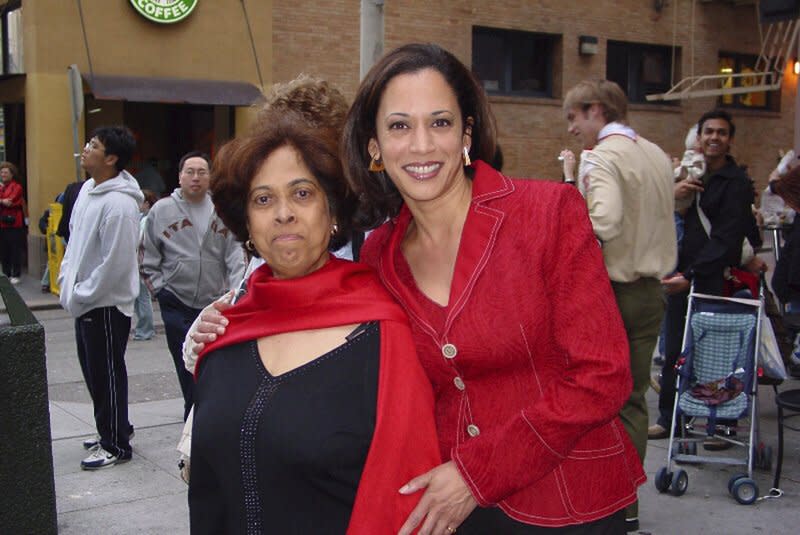How Kamala Harris' Jamaican Father and Indian Mother 'Fell in Love in That Most American Way'

Kamala Harris made history as soon as Joe Biden said her name last month when announcing her as his running mate in the presidential election.
Harris, a California senator and former prosecutor born to a Jamaican father and Indian mother, became the first Black person and first person of Asian descent nominated to a presidential ticket by a major party.
People began poring over her backstory, more so even than during her previous run in the Democratic primary.
She has spoken about her parents while on the campaign trail, painting a picture of their romance in the midst of the American civil rights movement. And she has written of the more complicated result of that courtship, when her parents separated when she was 5 years old.
Donald Harris and Shyamala Gopalan first met in 1962 while both were attending the University of California at Berkeley — he as a doctoral student and she as a scientist.

According to The New York Times, Gopalan was high achiever whose dreams weren't realized at the British-founded Lady Irwin College in New Delhi. After receiving a degree in home science (a catch-all discipline that largely covers home economics and house management) at Lady Irwin, Gopalan set her sights on America, where she would be able to study biochemistry.
Her journey to Berkeley mirrored that of her future husband, who sought a doctorate in economics after being awarded a scholarship from Britain's colonial government, the Times reported. While in college, the two became active in the civil rights movement, eventually joining the Afro American Association, a group that helped lay the foundation for what would become the Black Panther movement.

Kamala told a virtual crowd at the 2020 Democratic National Convention, in language merging the personal and political, that her parents "fell in love in that most American way — while marching together for justice in the civil rights movement of the 1960s.”
A year after their first fateful meeting, Gopalan and Donald were married. In 1964, they welcomed Kamala; her sister, Maya, was born in 1967.
Kamala's childhood — spent in late 1960s and early 1970s Berkeley — helped form who she is today, she has said.
"My parents would bring me to protests — strapped tightly in my stroller," she said in August, in her first public remarks after being named Biden's running mate.
Their relationship ultimately didn't last, however, ending in separation five years after Kamala was born.

In her DNC speech, Kamala briefly touched on that split, adding that her mother was "the most important person in [her] life," whose outlook on life led her to become a lawyer, district attorney, attorney general and ultimately a U.S. senator.
In her 2019 book, The Truths We Hold, she wrote that her parents struggled with "incompatibility" and that she and her sister spent the bulk of their time with their mother, but would see dad Donald "on weekends and spend summers with him in Palo Alto.”
Kamala wrote in her memoir: "[H]ad they been a little older, a little more emotionally mature, maybe the marriage could have survived. But they were so young. My father was my mother’s first boyfriend.”

Gopalan, who died of cancer in 2009, was described in an obituary as "a commanding presence characterized by a sharp wit, keen sense of humor and endless depth of knowledge."
Harris' father, 82, currently serves as an emeritus economics professor at Stanford.
While the two aren't estranged, the potential vice-president's relationship with her father has shown some strain. (He has avoided interviews, according to the Times, saying, "The celebrity-seeking business is not my thing, and I have tried hard to keep out of it.")
While campaigning for president in 2019, the senator was asked whether she had ever smoked marijuana during an appearance on the radio show The Breakfast Club.
"Half my family's from Jamaica — are you kidding me?" she jokingly responded.
Reports suggested that her father took offense to the stereotype, telling Jamaica Global Online in a statement that his deceased parents and grandparents "must be turning in their grave ... to see their family’s name, reputation and proud Jamaican identity being connected, in any way, jokingly or not with the fraudulent stereotype of a pot-smoking joy seeker ... "

